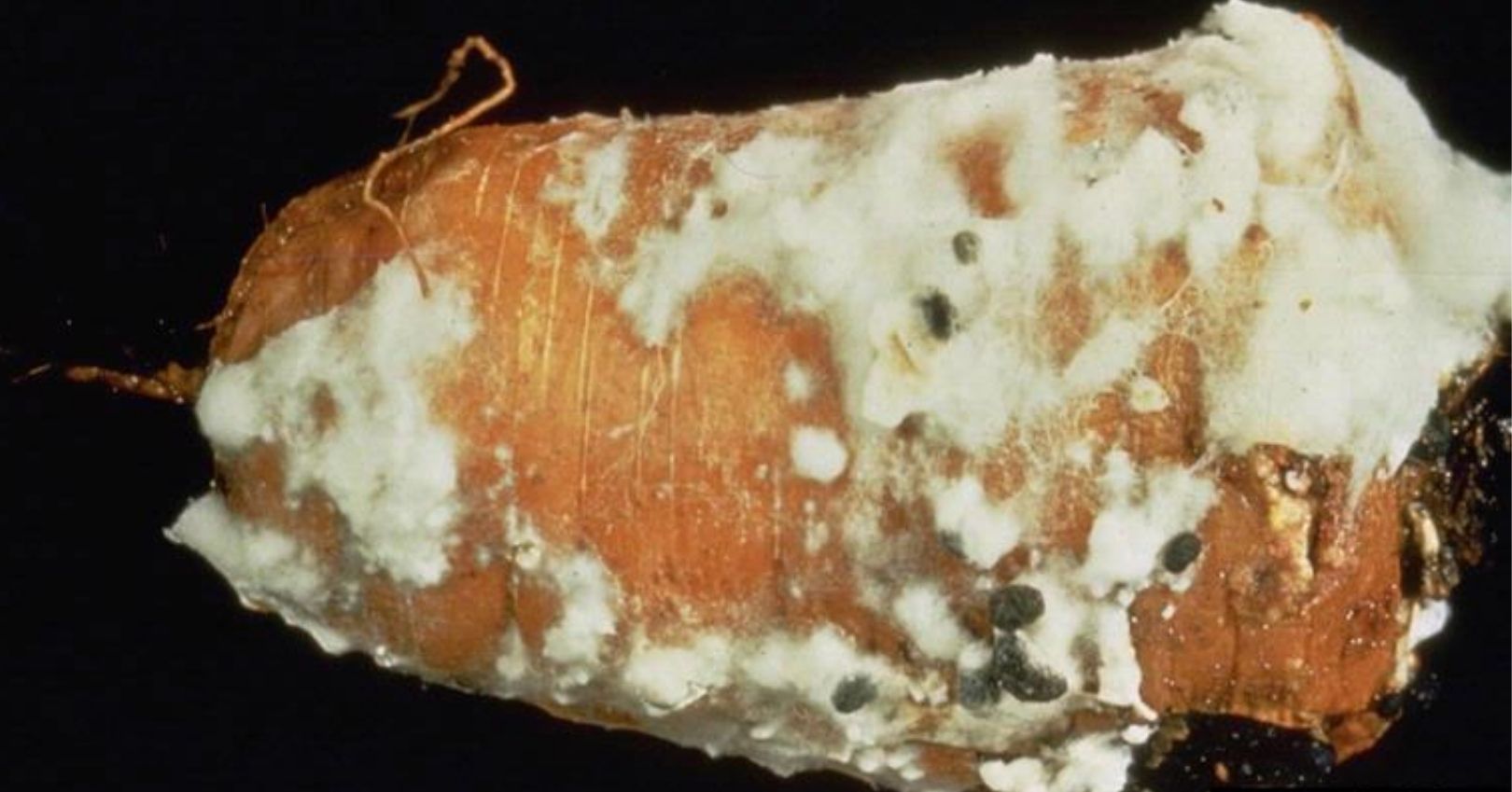Cottony Soft Rot (White Mold)

Casual Agent
Cottony soft rot is a white mold caused by the fungus Sclerotinia sclerotiorum. The host range is wide, and includes succulent plants, ornamentals, and several vegetable crops. For root crops, carrots are most susceptible.
Symptoms
Sclerotinia causes infection during any growth stage of the carrot. Extensive root decay will lead to wilt and collapse the above ground portion of the plant. The “cottony” white mycelium appears on infected tissue, usually at the base of the plant. Inside this mycelium are black, irregular shaped structures called sclerotia (hard balls of mycelium), which range in size from 0.1-0.4 inches wide
Disease Cycle
During late summer/early fall, S. sclerotiorum produces sclerotia that germinates and produces hyphae directly on the surface or inside of infected plant tissue. The following spring, these structures sometimes produce fruiting bodies called apothecia which have thin stalks with small, cup-like structures. Eventually, the ascospores are released and carried by the wind to susceptible hosts where they cause new infections. The optimal conditions for infection are cool temperatures (60°-70°F).

